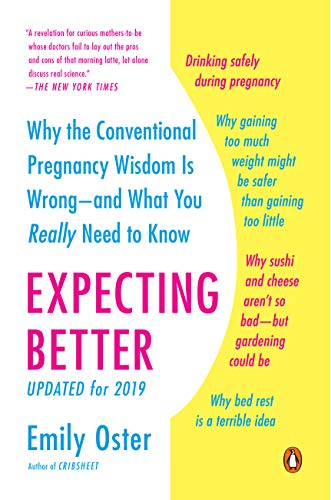

This article is an excerpt from the Shortform summary of "Expecting Better" by Emily Oster. Shortform has the world's best summaries of books you should be reading.
Like this article? Sign up for a free trial here .
A minority of pregnancies end in miscarriage, and there’s largely nothing you can do about it. About 90% of miscarriages in the first trimester are due to chromosomal problems at conception. It’s not your fault.
What is your chance of miscarriage at 7 weeks? 8 weeks? 12 weeks?
Here’s a table showing the risk of miscarriage by week (here’s the source):
| Week | Chance of miscarriage |
| 3rd week | 30% |
| 4th week | 25% |
| 5th week | 19% |
| 6th week | 11% |
| 7th week | 7.2% |
| 8th week | 5.8% |
| 9th week | 3.3% |
| 10th week | 3.2% |
| 11th week | 1.9% |
| 12th week | 1.7% |
| 13th week | 1.3% |
| 14th week | 1% |
Here’s a chart showing the chance of miscarriage by week:

Remember that the weeks are counted from your last menstrual cycle. Typically, the egg gets fertilized at the beginning of Week 3, and the end of Week 4 is when you miss your period.
The 6th week is the second week after your missed period, and often the time of the first prenatal visit when you get an ultrasound. It has the highest risk of miscarriage, between 10-15%. After week 12, the risk is 1-2%.
It’s common to announce after the first trimester (roughly 12 weeks), but the risk of miscarriage decreases substantially by week 9. Soon, it’s well below 1%
Other factors that affect miscarriage:
- Women with a previous miscarriage have a miscarriage chance of 25% in first trimester, compared to 4-5% for first pregnancies or women with a previous successful pregnancy.
- Age increases miscarriage rate: women below age 20 have a miscarriage rate of 4.4%; women aged 20-35 have a miscarriage rate of 6.7%; and women over 35 have a 19% miscarriage rate.
- IVF pregnancies have miscarriage rates of 30%, vs 19% for natural pregnancies.
- Vaginal bleeding signals increased risk – 13% of women with bleeding have miscarriages, vs 4.2% without.
- Lack of nausea signals a higher miscarriage rate.
- Low levels of progesterone may contribute to miscarriage.
———End of Preview———

Like what you just read? Read the rest of the world's best summary of "Expecting Better" at Shortform . Learn the book's critical concepts in 20 minutes or less .
Here's what you'll find in our full Expecting Better summary :
- Why much parenting advice you hear is confusing or nonsense
- The most reliable way to conceive successfully
- How much alcohol research shows you can drink safely while pregnant (it's more than zero)
- The best foods to eat, and what foods you really should avoid






